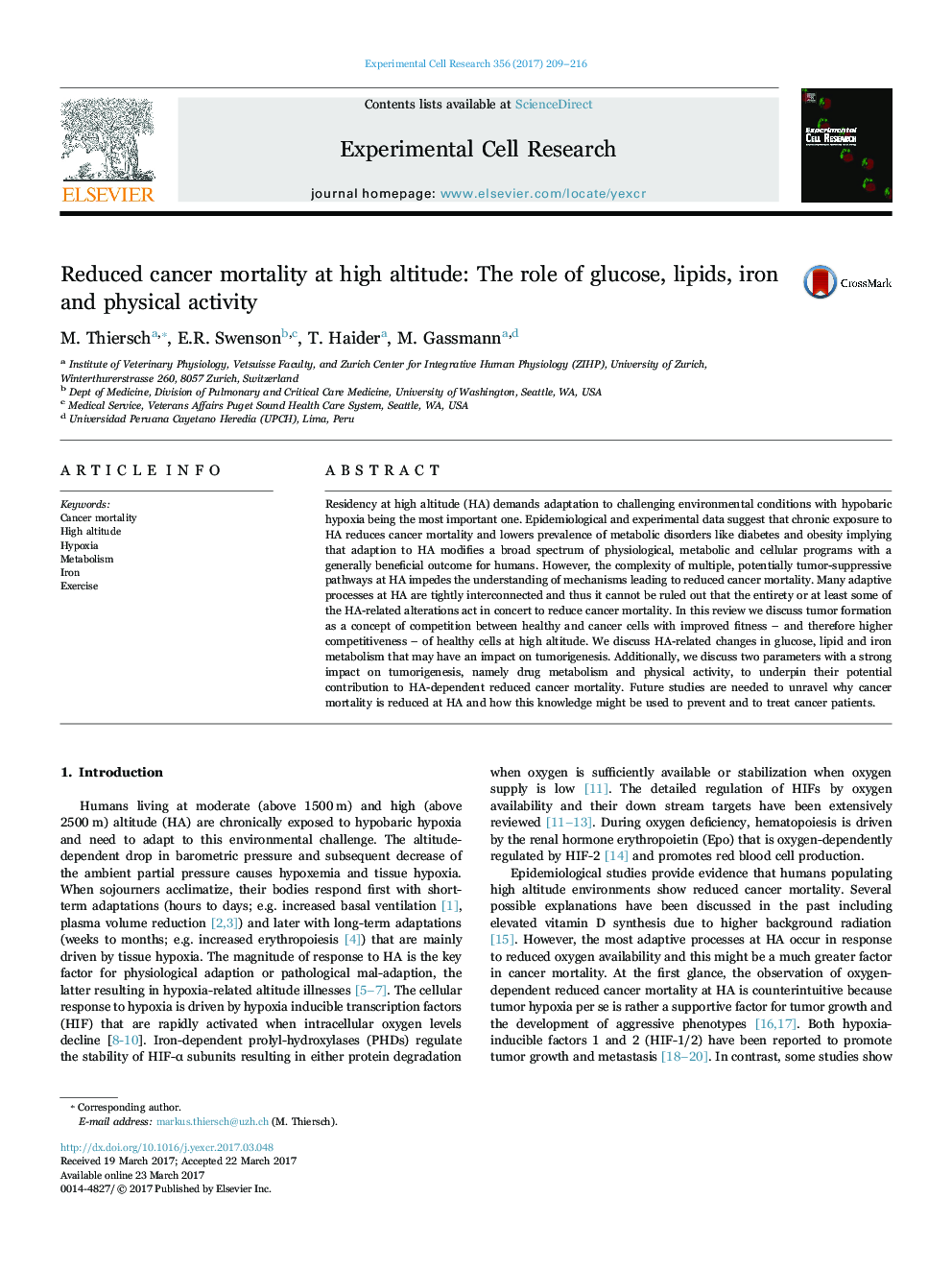| Article ID | Journal | Published Year | Pages | File Type |
|---|---|---|---|---|
| 5526939 | Experimental Cell Research | 2017 | 8 Pages |
Residency at high altitude (HA) demands adaptation to challenging environmental conditions with hypobaric hypoxia being the most important one. Epidemiological and experimental data suggest that chronic exposure to HA reduces cancer mortality and lowers prevalence of metabolic disorders like diabetes and obesity implying that adaption to HA modifies a broad spectrum of physiological, metabolic and cellular programs with a generally beneficial outcome for humans. However, the complexity of multiple, potentially tumor-suppressive pathways at HA impedes the understanding of mechanisms leading to reduced cancer mortality. Many adaptive processes at HA are tightly interconnected and thus it cannot be ruled out that the entirety or at least some of the HA-related alterations act in concert to reduce cancer mortality. In this review we discuss tumor formation as a concept of competition between healthy and cancer cells with improved fitness - and therefore higher competitiveness - of healthy cells at high altitude. We discuss HA-related changes in glucose, lipid and iron metabolism that may have an impact on tumorigenesis. Additionally, we discuss two parameters with a strong impact on tumorigenesis, namely drug metabolism and physical activity, to underpin their potential contribution to HA-dependent reduced cancer mortality. Future studies are needed to unravel why cancer mortality is reduced at HA and how this knowledge might be used to prevent and to treat cancer patients.
